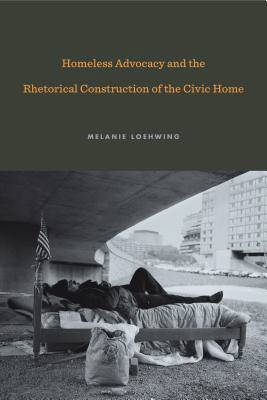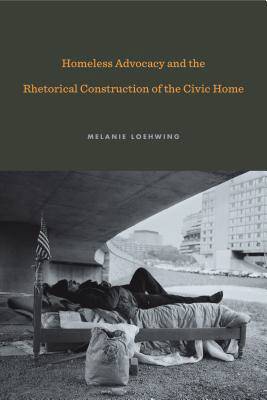
- Retrait gratuit dans votre magasin Club
- 7.000.000 titres dans notre catalogue
- Payer en toute sécurité
- Toujours un magasin près de chez vous
- Retrait gratuit dans votre magasin Club
- 7.000.0000 titres dans notre catalogue
- Payer en toute sécurité
- Toujours un magasin près de chez vous
Homeless Advocacy and the Rhetorical Construction of the Civic Home
Melanie LoehwingDescription
Homeless assistance has frequently adhered to the "three hots and a cot" model, which prioritizes immediate material needs but may fail to address the political and social exclusion of people experiencing homelessness. In this study, Loehwing reconsiders typical characterizations of homelessness, citizenship, and democratic community through unconventional approaches to homeless advocacy and assistance.
While conventional homeless advocacy rhetoric establishes the urgency of homeless suffering, it also implicitly invites housed publics to understand homelessness as a state of abnormality that destines the individuals suffering it to life outside the civic body. In contrast, Loehwing focuses on atypical models of homeless advocacy: the meal-sharing initiatives of Food Not Bombs, the international competition of the Homeless World Cup, and the annual Homeless Persons' Memorial Day campaign. She argues that these modes of unconventional homeless advocacy provide rhetorical exemplars of a type of inclusive and empowering civic discourse that is missing from conventional homeless advocacy and may be indispensable for overcoming homeless marginalization and exclusion in contemporary democratic culture.
Loehwing's interrogation of homeless advocacy rhetorics demonstrates how discursive practices shape democratic culture and how they may provide a potential civic remedy to the harms of disenfranchisement, discrimination, and displacement. This book will be welcomed by scholars whose work focuses on the intersections of democratic theory and rhetorical and civic studies, as well as by homelessness advocacy groups.
Spécifications
Parties prenantes
- Auteur(s) :
- Editeur:
Contenu
- Nombre de pages :
- 232
- Langue:
- Anglais
- Collection :
- Tome:
- n° 19
Caractéristiques
- EAN:
- 9780271082158
- Date de parution :
- 05-10-18
- Format:
- Livre relié
- Format numérique:
- Genaaid
- Dimensions :
- 152 mm x 229 mm
- Poids :
- 512 g

Les avis
Nous publions uniquement les avis qui respectent les conditions requises. Consultez nos conditions pour les avis.






